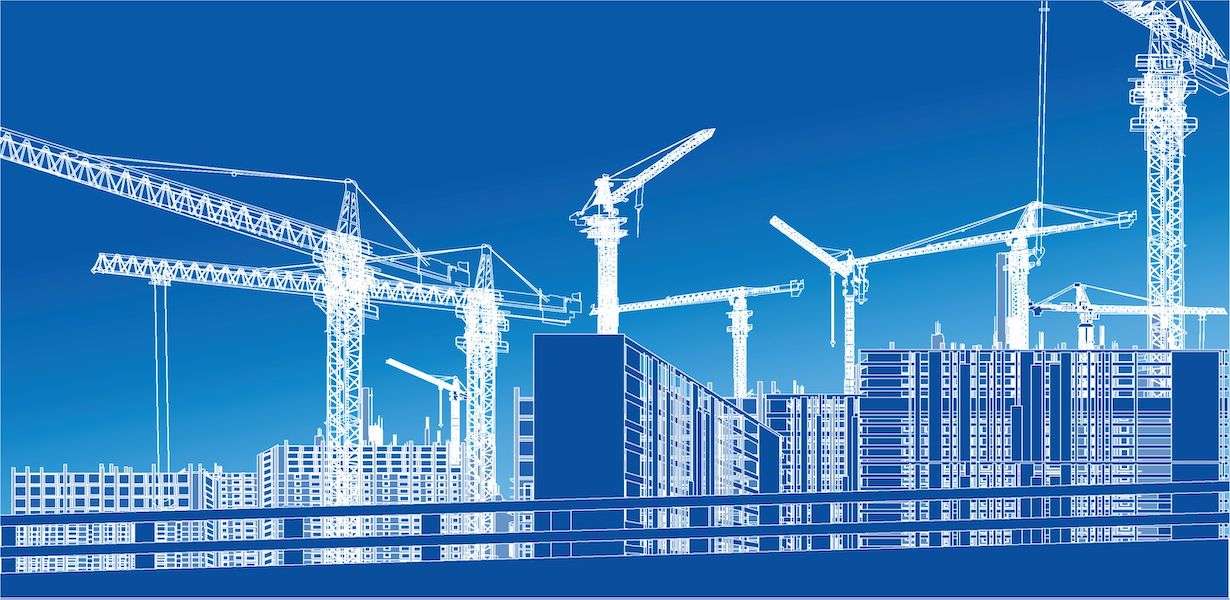Blockchain technology has the potential to revolutionize the construction industry. At its core, blockchain is a decentralized, distributed ledger that allows multiple parties to securely record and verify transactions without the need for a central authority.
This technology has the potential to significantly improve the efficiency and transparency of construction projects, making it a valuable tool for both industry professionals and consumers. Balint Penzes, a Consultant Engineer at COWI, has discussed a recent ICE report on how the use of blockchain technology in the construction sector could offer numerous benefits and shared insights on how it could be utilized to potentially disrupt the industry.
Introduction
One of the key benefits of using blockchain technology in the construction industry is its ability to improve the accuracy and reliability of project data. In traditional construction projects, data is often scattered across multiple parties, making it difficult to track and verify. This can lead to errors and inconsistencies, which can delay projects and increase costs.
By using a blockchain-based system, all parties involved in a construction project can securely record and access data in real-time, ensuring that everyone has access to the most up-to-date information. This can help to reduce errors and improve collaboration, ultimately leading to more efficient and cost-effective projects.
What is blockchain?
Blockchain is a decentralized, distributed ledger technology that allows multiple parties to securely record and verify transactions without the need for a central authority. At its core, a blockchain is a digital record of transactions that is maintained by a network of computers, rather than a single centralized authority. This decentralized nature of blockchain technology makes it resistant to tampering and other forms of interference, making it a secure and reliable way to store and manage data.
One of the key features of blockchain technology is its ability to allow multiple parties to collaborate and share information in real-time, without the need for a central authority. This makes it an ideal technology for industries where multiple parties need to share information and work together, such as the financial industry and supply chain management.
In addition to its decentralized nature, blockchain technology is also transparent and immutable. This means that once a transaction is recorded on the blockchain, it cannot be altered or deleted. This transparency and immutability make it a valuable tool for ensuring the accuracy and integrity of data.
Other Benefits of it
Another benefit of blockchain technology in construction is its ability to increase transparency and accountability. In traditional construction projects, it can be difficult to track the flow of funds and ensure that they are being used properly. This can lead to issues such as fraud and mismanagement of resources.
With a blockchain-based system, all transactions are recorded on the distributed ledger, allowing anyone with access to the system to track the flow of funds and verify that they are being used as intended. This level of transparency can help to increase accountability and ensure that funds are being used properly, ultimately leading to more successful construction projects.
In addition to improving efficiency and transparency, blockchain technology can also be used to improve the security of construction projects. Because blockchain is a decentralized system, it is resistant to tampering and other forms of interference. This can help to protect sensitive project data from unauthorized access and ensure that it remains secure throughout the duration of the project.
Overall, the use of blockchain technology in the construction industry has the potential to greatly improve the efficiency, transparency, and security of construction projects. As technology continues to evolve, it is likely that we will see more and more construction companies adopting blockchain-based systems to improve their operations and better serve their clients.
Challenges to implementation
Although the technology is still new and there are challenges to overcome, the potential for reshaping the construction industry for the better is too great to ignore. Construction is one of the largest industries in the world and the infrastructure it creates is essential for economic growth and productivity. It is our responsibility to support its digital transformation and prepare it for the challenges of the 21st century.
Blockchain technology in construction insight report
To better understand the challenges and opportunities presented by blockchain technology, ICE has published a report titled “Blockchain technology in the construction industry“. The report summarizes the concept of blockchain and offers insight into its potential applications in the construction industry, including smart contracts, payment and project management, procurement and supply chain management, BIM and smart asset management, and challenges for implementation. ICE thanks the report author and contributors, and encourages readers to consider how their systems, business, and processes could be impacted by blockchain technology.
